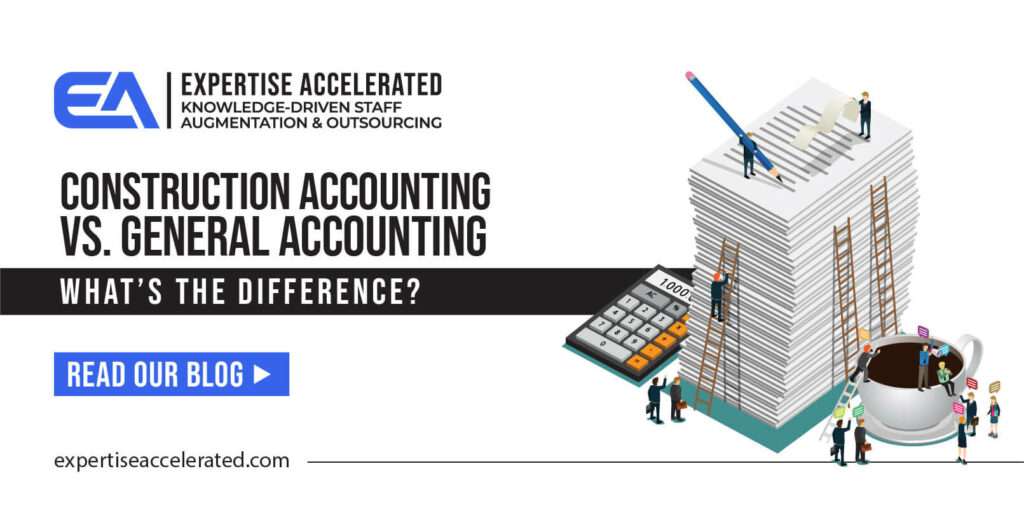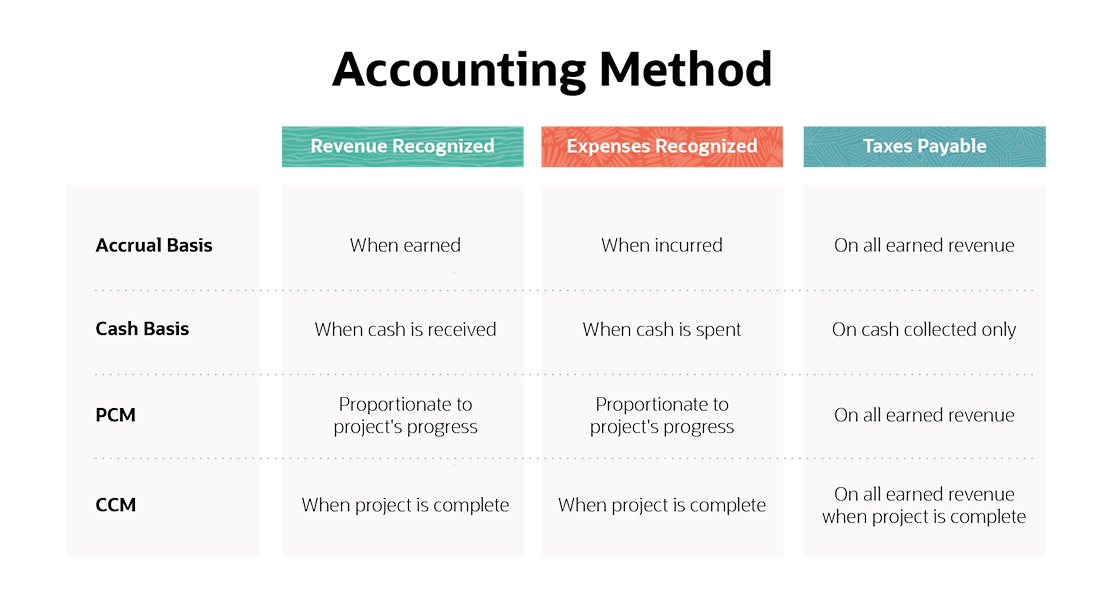Construction Accounting: Navigating Taxes and Expenses in the Construction Sector
Construction Accounting: Navigating Taxes and Expenses in the Construction Sector
Blog Article
Secret Services Offered in Building Bookkeeping to Enhance Financial Oversight
In the world of construction bookkeeping, key solutions such as project price estimate, budget administration, and cash flow analysis play a critical function in boosting economic oversight. Recognizing these nuances can dramatically affect the efficiency of economic oversight in construction tasks.
Project Price Estimate
Effective project expense estimate is a vital part of effective building audit services, as it directly affects budgeting and monetary preparation (construction accounting). Precise cost estimates give a thorough review of the financial demands for a building project, allowing stakeholders to make educated choices regarding source allocation and project usefulness
A complete expense estimate process encompasses various components, consisting of labor, products, tools, overhead, and contingencies. By examining historical data and present market patterns, building accountants can develop reasonable price quotes that show true project expenses. This logical technique not only help in protecting funding however likewise boosts openness and accountability amongst all parties included.
Additionally, exact cost estimate offers as a foundation for monitoring and regulating costs throughout the project's lifecycle. By developing a clear baseline, building accounting professionals can identify disparities in between estimated and actual costs, allowing for timely adjustments and interventions.
Ultimately, effective task price evaluation not only assists in smoother project implementation yet additionally enhances the general financial health of construction services, guaranteeing they remain competitive in a progressively dynamic industry. This critical method emphasizes the relevance of competent specialists in delivering exact and trusted expense estimates.
Spending Plan Administration
In the world of building and construction accounting services, spending plan management plays a crucial function in making certain that projects remain economically viable and on course. Efficient spending plan management involves the methodical planning, monitoring, and managing of job prices to straighten with financial objectives. It begins with the production of a comprehensive budget that accurately shows the expected costs of labor, products, equipment, and overhead based upon detailed project price evaluation.
When the spending plan is established, ongoing surveillance is crucial. This includes routine analyses of actual expenditures against the budgeted figures, enabling for timely recognition of discrepancies. By applying tools and software application tailored for construction bookkeeping, task supervisors can create real-time records that assist in informed decision-making.
Additionally, proactive budget plan monitoring makes it possible for stakeholders to change economic allowances and sources as needed, promoting versatility in reaction to unanticipated challenges. This adaptability is important in the building and construction market, where job scopes can frequently transform. Ultimately, robust budget management not just strengthens economic accountability yet additionally boosts general project performance, making sure effective completion within the designated monetary parameters.
Cash Flow Analysis
Capital evaluation acts as a vital element of building and construction accounting, making it possible for job managers to maintain a clear understanding of the inflow and outflow of funds throughout the job lifecycle. This analytical process allows for the identification of prospective cash money scarcities or surpluses, equipping supervisors to make enlightened decisions concerning budgeting and resource allotment.
By carefully tracking cash money inflows from client settlements, fundings, and various other profits resources, along with checking outflows such as labor, products, and overhead costs, task managers can create a detailed cash money circulation forecast - construction accounting. This forecast not just help in projecting future economic placements however likewise helps in recognizing trends his explanation that may influence job feasibility
Routine capital analysis facilitates timely treatments, permitting job managers to deal with economic difficulties prior to they rise. This positive method can alleviate threats connected with delayed repayments or unexpected expenditures, ultimately resulting in even more effective project conclusions. Effective money flow administration contributes to preserving solid relationships with subcontractors and suppliers by guaranteeing prompt repayments.
Basically, money circulation analysis is a crucial tool in construction accounting, driving monetary security and operational efficiency throughout the duration of construction jobs.
Regulatory Compliance Assistance
Regulative conformity support is necessary for building and construction firms browsing the complex landscape of sector policies and requirements. The construction sector goes through a myriad of neighborhood, state, and government guidelines, including security standards, labor regulations, and ecological guidelines. Non-compliance can lead to considerable penalties, hold-ups, and reputational damages.
A robust conformity support group aids firms remain notified about appropriate guidelines and ensures that they apply necessary plans and procedures. This includes tracking changes in regulation, providing check this training for workers, and performing routine audits to examine conformity degrees. Construction accountants play a vital duty in this procedure, using knowledge to translate laws and line up economic techniques appropriately.
Furthermore, regulatory compliance support incorporates the preparation and entry of required documents, such as tax obligation filings and reporting for labor requirements. By developing an aggressive conformity technique, building and construction companies can minimize risks connected with non-compliance, improve operational effectiveness, and cultivate a society of responsibility.
Ultimately, effective regulatory conformity assistance not only safeguards a building firm's monetary health yet additionally reinforces its reputation in the market, placing it for sustainable development and success.

Financial Coverage and Insights
While browsing the complexities of the building industry, exact financial coverage and insightful evaluation are important for educated decision-making. Building projects often entail considerable capital expense and varying expenses, making it vital for stakeholders to have access to timely and clear monetary information. Detailed economic records, consisting of revenue and loss declarations, capital estimates, and annual report, give a photo of a firm's financial health and wellness and efficiency.
In addition, tailored insights stemmed from these reports aid supervisors recognize fads, analyze task success, and make calculated changes to improve functional effectiveness. Trick performance indications (KPIs) specific to building and construction-- such as project margins, labor expenses, and overhanging ratios-- offer useful standards for reviewing success and forecasting future performance.
Furthermore, routine financial reporting enables compliance with legal responsibilities and promotes transparency with financiers and stakeholders. By leveraging sophisticated accounting software and information analytics, building like it and construction firms can improve their monetary oversight, enabling them to browse unpredictabilities extra efficiently. Inevitably, durable financial coverage and actionable insights empower building and construction companies to make enlightened decisions that promote development and sustainability in an extremely competitive market.
Verdict

In the world of building audit, vital solutions such as task expense evaluation, spending plan administration, and money flow evaluation play a crucial role in improving monetary oversight. Inevitably, durable budget plan monitoring not just reinforces economic liability but additionally improves total project efficiency, ensuring effective conclusion within the assigned financial parameters.

Report this page